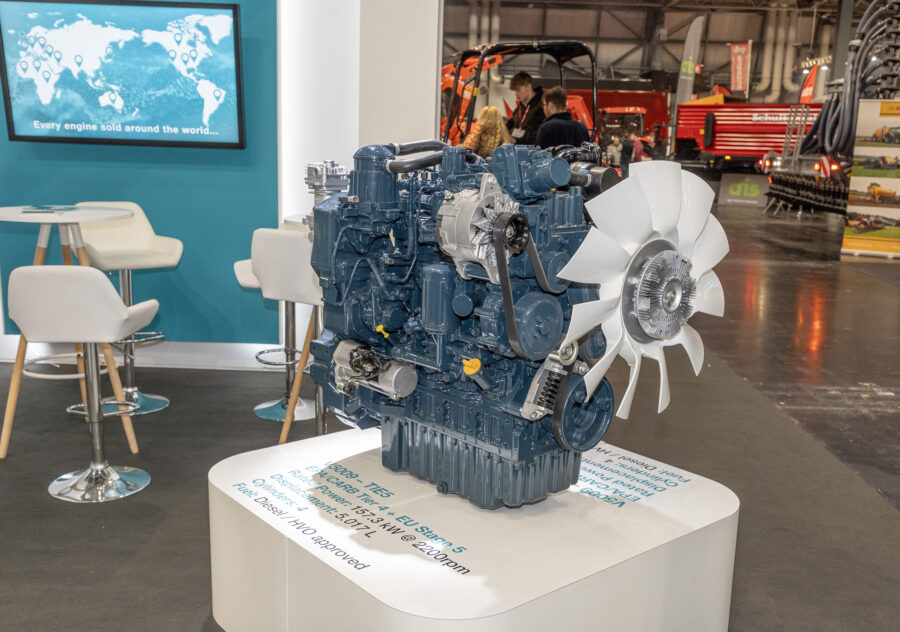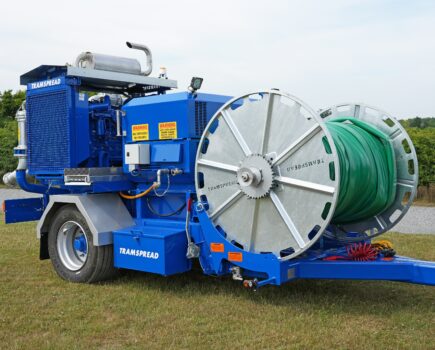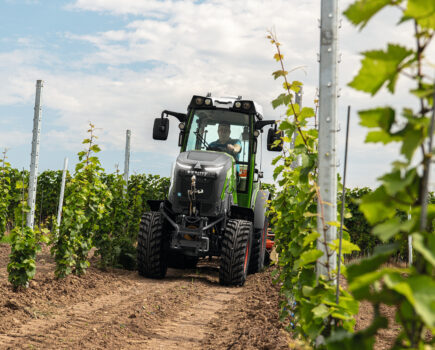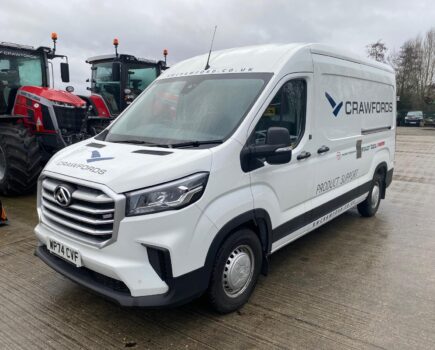Kubota has introduced two engine solutions suited to the OEM supply chain for agricultural and forestry sectors, including a 3.8 litre hydrogen engine, and its most powerful engine to-date, the 210hp V5009.
Kubota’s H2 hydrogen engine is based on its four-cylinder, spark-ignition WG3800 engine, and delivers a rated power output of 114hp (85kW) at 2,600rpm. It eliminates carbon dioxide emissions by only using hydrogen as a fuel.
The H2 hydrogen engine is expected to be an attractive choice within the agricultural sector and is already attracting major industry attention and awareness. One of the largest mobile generator manufacturers in the world and Kubota have already agreed on the development of a dedicated hydrogen generator equipped with a Kubota hydrogen engine.
Kubota’s V5009 is its most powerful engine to-date. The 5.018-litre, four-cylinder turbo-diesel has a rated power output of 210hp (157.3kW) at 2,200rpm. Meeting EU Stage V and EPA/CARB Tier 4 emissions standards, the V5009 has been engineered to satisfy the needs of industry and is suitable for forestry, agricultural applications and crop sprayers.
As an option for those customers who would usually require a larger six- or seven-litre engine, the V5009 power unit can now meet their higher power needs. With a high-power density, the V5009 includes a 100% power take-off at the flywheel and front end, a side-power take off with up to four hydraulic pumps and a choice of flywheel housing and flywheel for OEM coupling.
Other features of the V5009, which has a direct injection combustion system and common rail fuel system, include a high-pressure supply pump, an optimised water jacket with heat resistance for the high-power rating and a ladder frame structure for noise reduction. Fuel consumption has been reduced by maximising the cylinder pressure and there is the benefit of a cold start capability of -30 °C and a 500-hour engine oil service interval (with standard heavy-duty usage).
Daniel Grant, manager marketing intelligence for Kubota Business Unit Engines Europe, said Kubota offers support, technological back-up and leading engine products to support every part of the agricultural sector.
“These latest engines underpin our determination to provide innovative solutions for the farming sector and this demonstrates our commitment to the wider environment through the use of carbon alternative fuels, said Daniel. “Because our new engines have the same footprint as existing models, the demands placed on maintenance and installation teams is greatly reduced. And with our engines being so compact we can offer enhanced power from the same machinery dimensions.”





